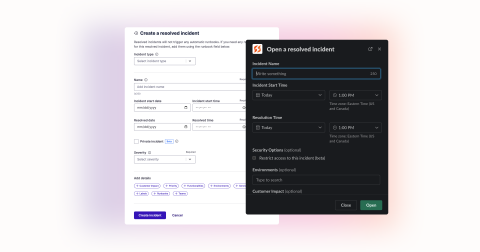Forgot to declare an incident? Add it retroactively in FireHydrant.
Have you ever quickly worked through an issue with your team and later thought, “Huh. That probably should have been an incident.” It happened to us just a few weeks back. After one of our engineers surfaced a failed build, a few folks chimed in to problem solve and within 30 minutes things were up and running like normal. But we probably should have declared an incident.





